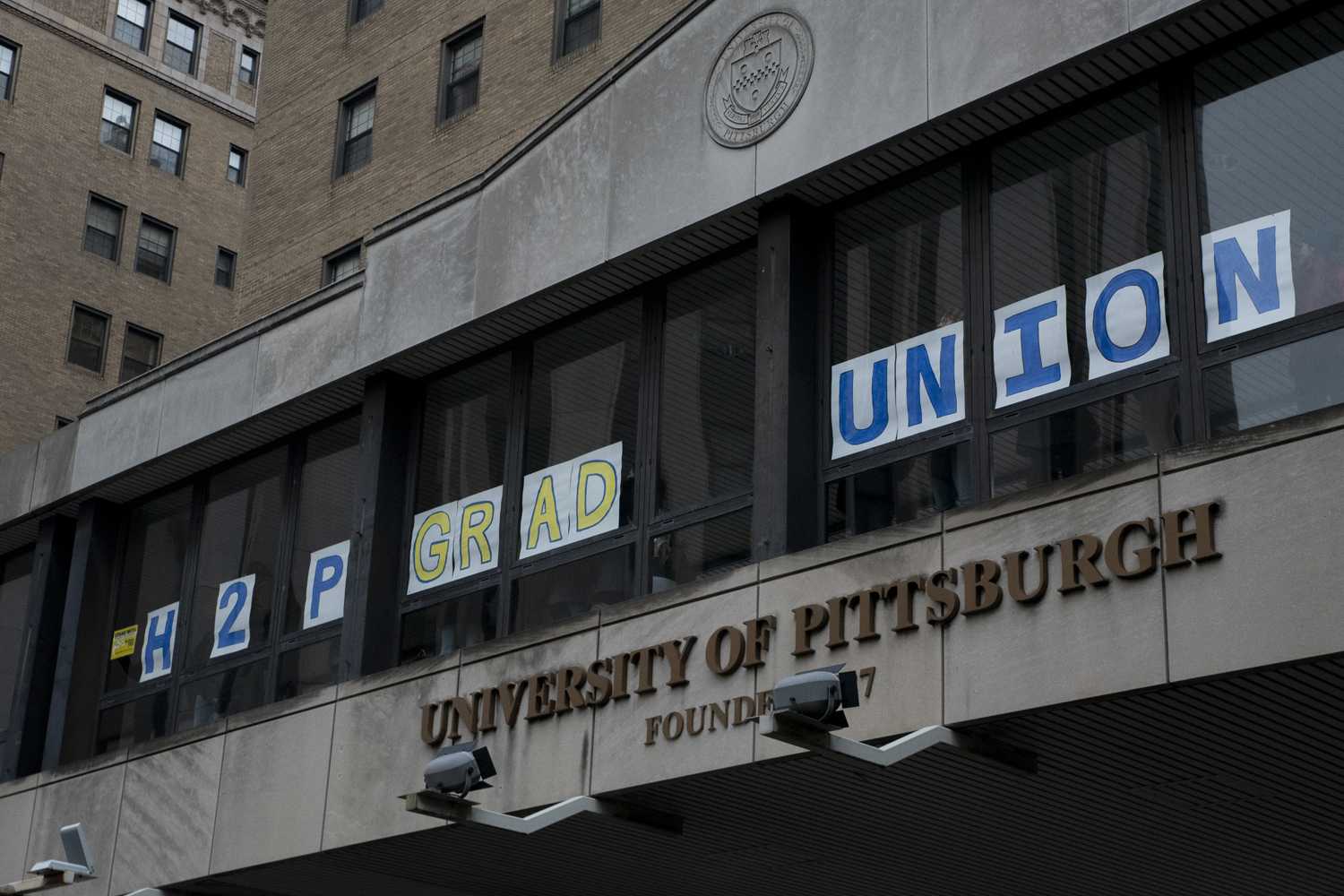Editorial: Pitt is wasting its money on union battles


Pitt spent more than a million dollars over a 12-month period to battle against graduate students’ and faculty’s unionization efforts.
The battle between Pitt and its graduate students’ and faculty’s unionization efforts has evidently come at a cost — one of just more than a million dollars.
Until 2018, Pitt’s Office of University Counsel had paid the Philadelphia-based Ballard Spahr, a union avoidance law firm, tens of thousands of dollars annually. However, between July 1, 2018, and June 30, 2019, it paid the firm $1,071,573 — a good chunk of which likely went to the legal support in hearings arguing against graduate student unionization. This is an absurd amount of money that could be better spent in other places, especially considering this fight isn’t one the University should be waging in the first place.
The Graduate Student Organizing Committee kicked off its union effort in January 2016 because its members wanted higher wages, increased benefits, greater transparency and increased protections against discrimination and harassment. If these are all valid concerns on the part of members of the Pitt community, one would think the University would take them seriously and attempt to address them to the best of its ability, but the opposite appears to be true.
Pitt came out against the graduate student unionization effort in July 2017, with then-provost Patricia Beeson claiming that “The unique relationship graduate students have with their faculty, departments, and schools is not well suited to representation by a union.”
The Pennsylvania Labor Relations Board ruled in 2018 that graduate students at Penn State had the right to unionize under the Pennsylvania Employee Relations Act, provided they receive compensation for their work for the university in the form of stipends, waived tuition and health care benefits. This ruling seems unambiguous, and is something that Pitt shouldn’t have tried to challenge.
Instead, the University did choose to challenge Pitt grads’ right to an election, leading to a series of hearings in October 2018 where the PLRB ruled against Pitt’s argument, presented by Ballard Spahr, that graduate students could not be considered employees.
Since then, a PLRB official ruled in September 2019 that Pitt was guilty of three unfair labor practices during the failed April 2019 graduate student unionization election — a move that Pitt has contested and which will bring about a new round of hearings in front of the labor board.
Whether or not it is determined that the April election was conclusive, organizers should have been allowed from the start to carry out their unionization effort in peace. Rather than waste so much money on legal fees, Pitt could have used some of it to address the graduate students’ demands for higher wages and more benefits. The University also could have put that money toward programs which could use more funding, benefiting a lot of students and faculty.
Pitt made an unfortunate decision in pursuing this line of attack on its own grad students. It’s salt on the wound that it spent such a large amount of money on doing so. Not only that, but it reflects badly on the University when it spends so much just to avoid meeting the needs of its students.
Recent Posts
Porch roof collapse injures dozens during party on Semple Street
The roof of a porch on Semple Street collapsed during a St. Patrick’s Day celebration…
A Good Hill to Die On // Break It Down
In this release of “A Good Hill to Die On,” I dive deep into the…
Who Asked? // Does growth only “count” if it’s quantifiable?
This installment of Who Asked? by staff writer Brynn Murawski wonders why it feels like…
“They’re throwing trans people under the bus”: Counseling center faces backlash after event name change
On Feb. 24, Pitt’s Counseling Center faced backlash after briefly renaming an event from "LGBT…
Q&A: Meet the 2024-2025 SGB president and vice president
SGB announced the 2024-2025 election results at their meeting on Tuesday. The Pitt News spoke…
Editorial | Pitt Administration must listen to its students’ electoral demands
The passing of these referendums does not guarantee a future Pitt with these policies. Merely,…

